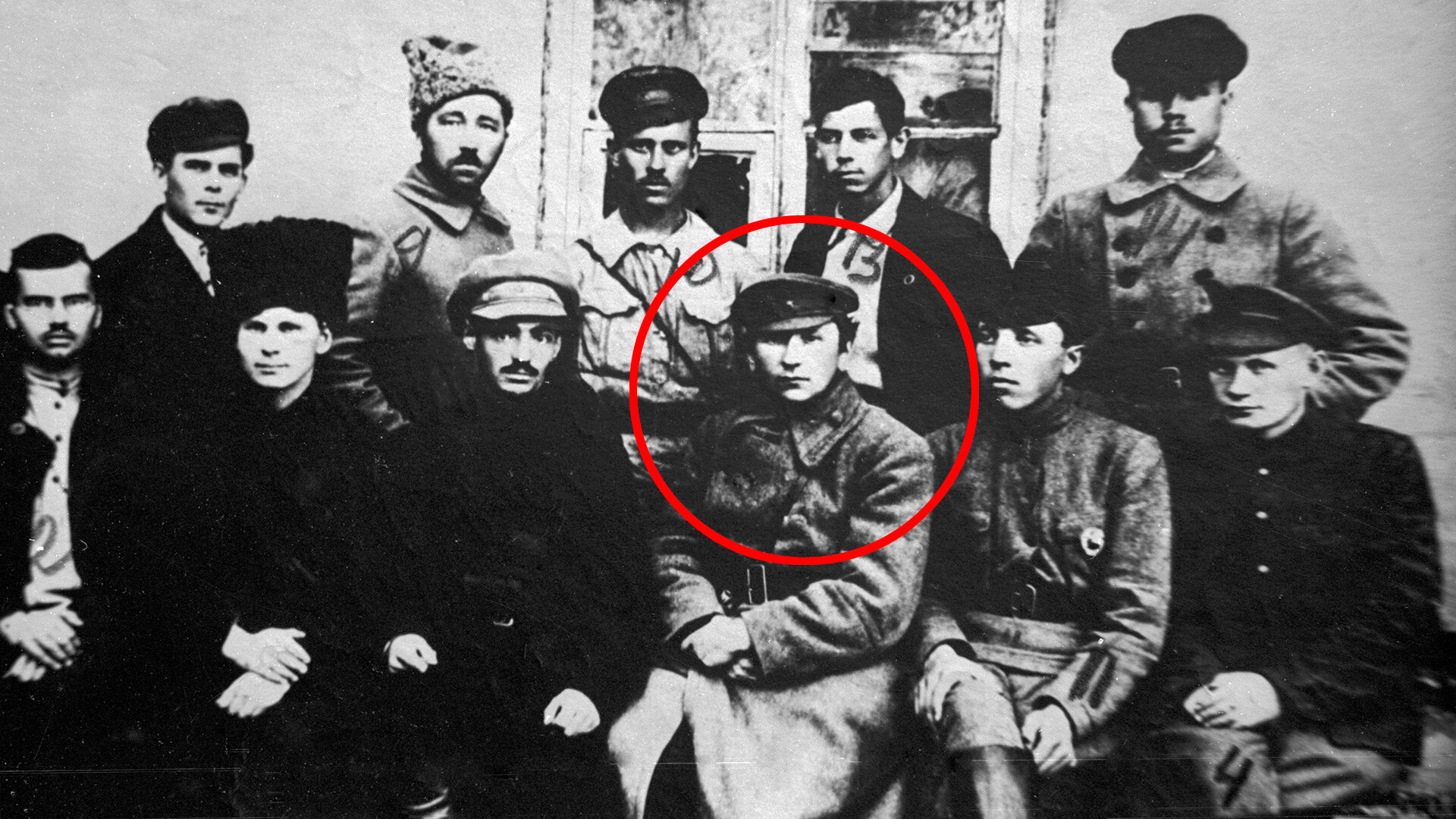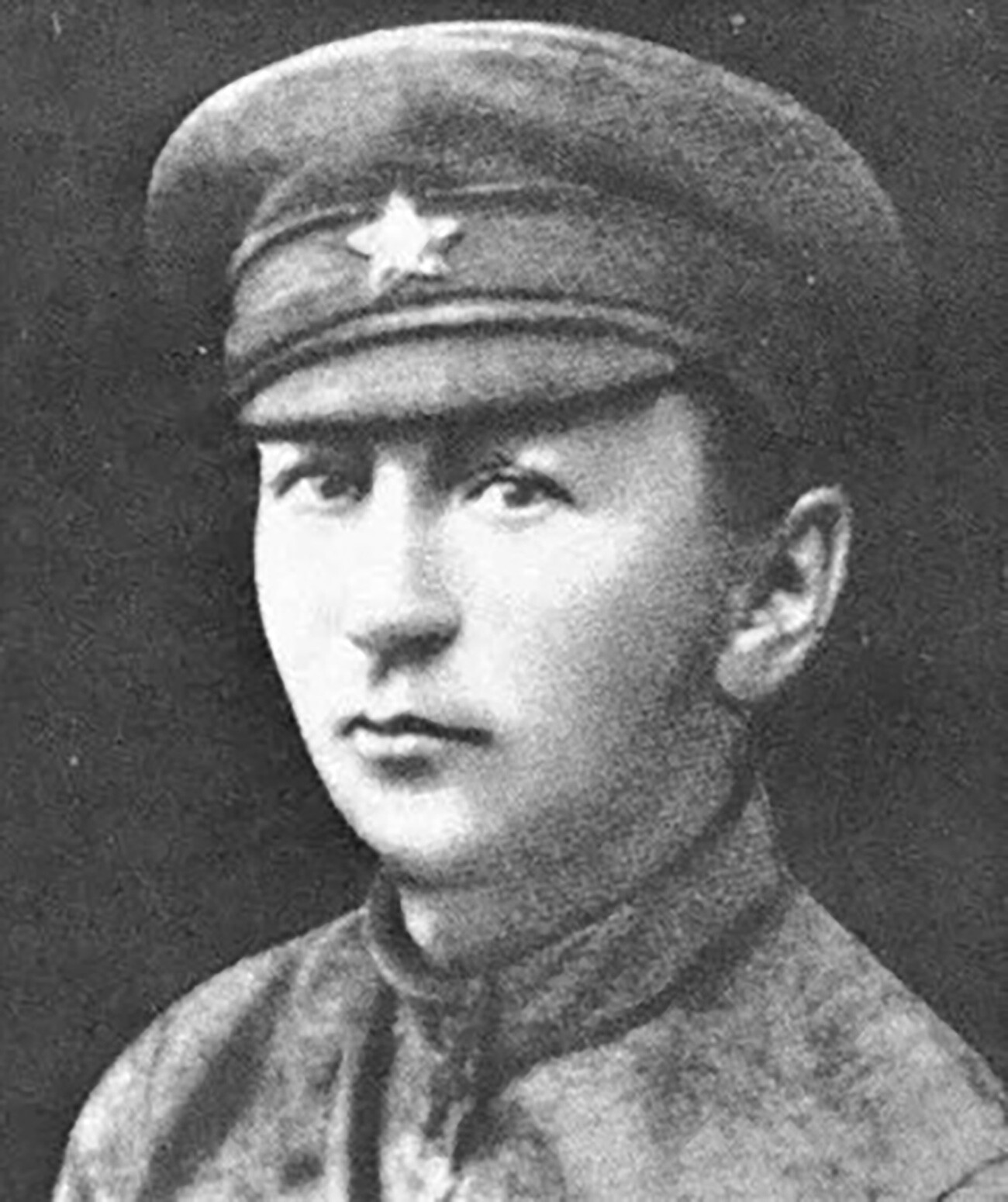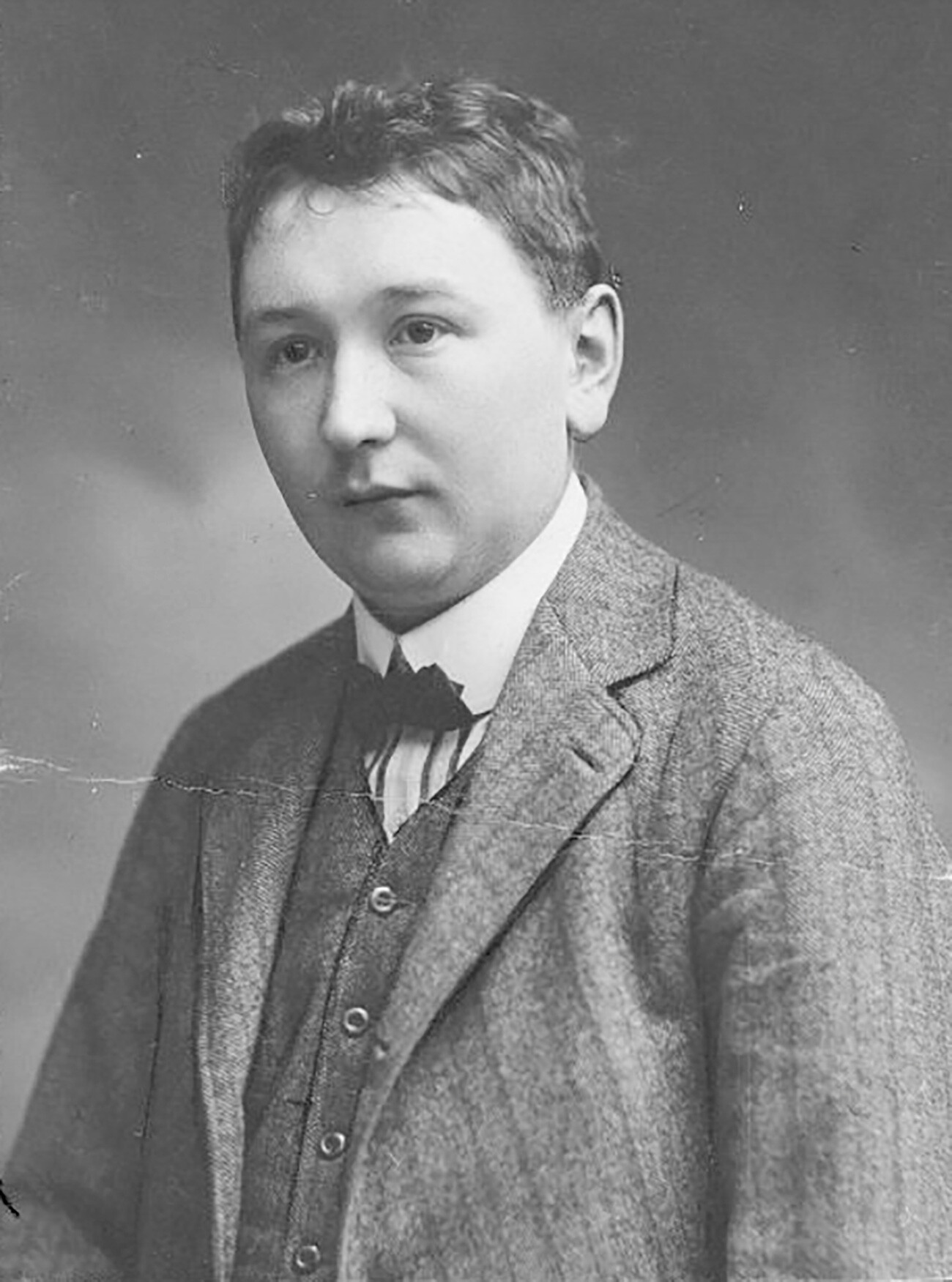
Jaroslav Hašek’ among the members of the political department of the 5th Army of the Eastern Front.
Pyotr Malinovsky/SputnikJaroslav Hašek first came to Russia in 1915 as a prisoner of war. The Czech patriot did not want to fight in the Austro-Hungarian army and surrendered to Russian troops.
Hašek devoted himself to the fight for the freedom of his historic homeland. He joined the Jan Hus Volunteer Regiment, conducted anti-Austrian agitation among prisoners of war and wrote satirical stories about the Viennese court.
In July 1917, the writer participated in the ‘Battle of Zborov’. The Czechoslovakian Rifle Brigade of the Russian Army then completely defeated two Austrian infantry divisions and Jaroslav was awarded the Cross of St. George, IV degree.

Hašek supported the Bolsheviks' rise to power in Russia, with most of his countrymen on the side of the revolution's opponents. They almost killed him in the Summer of 1918 in Samara - the writer escaped from patrols of White Czechs by posing as a “half-witted son of a German colonist from Turkestan”.
In December of the same year, ‘Comrade Hašek’ entered the political department of the 5th Army of the Eastern Front and, in 1919, as one who enjoyed special confidence, he was appointed commissar. He was engaged in agitation, publication of propaganda newspapers and the formation of military units from foreigners.
When, in mid-1920, a political crisis broke out in Czechoslovakia and the workers proclaimed a Soviet Republic in the town of Kladno, the party sent Hašek home. By the time he arrived, however, order had already been restored.

The ‘Bolshevik Commissar’ was met with a cool reception in Prague. However, Jaroslav, who had become an outcast, did not return to Soviet Russia - he decided that he would be considered a coward there and the Czechoslovak authorities would not let him out of the country.
Hašek withdrew from political activities and focused on writing a novel about the brave soldier Švejk, but due to his sudden death from cardiac paralysis in 1923, he never finished it.
If using any of Russia Beyond's content, partly or in full, always provide an active hyperlink to the original material.
Subscribe
to our newsletter!
Get the week's best stories straight to your inbox